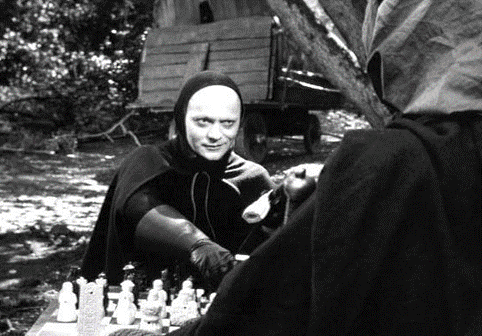 |
| Fernando Blanco Farias |
First, let me explain.
I don’t actually watch The Bachelor (or The Bachelorette), and I’m pretty sure I'm not going to start—sure in that “Even with the possibility of nuclear war looming, I’m pretty sure the sun will rise tomorrow” sense of the word.
This isn't the first time I've written about the show, though. I write about it because sometimes I get bored; and when I get bored, I read; and when I read I often go to sites that I like and writers that I enjoy, and read about things that I ordinarily might not have any interest in, just because. And so that’s a long way of going about explaining how I've been happening to read Rodger Sherman’s Bachelor episode reviews in The Ringer.
 |
| ABC |
Anyway, catching up on the lead-in to this season's thrilling finale, it's apparent that, even for the weird world of this show, this season's bachelor, Clayton, has committed a breach of protocol. Several, in fact, as we discover Clayton has told not one, not two, but three different women that he was wildly, madly in love with them. Oh, and he's also slept with two of them. (Well, I doubt there was any actual sleeping going on, but I'm still old fashioned about these things.) He made this revelation to the only woman he loved that he didn't sleep with, which may have been a tactical error on his part.
Upon hearing the news, Susie—the one whom he says he loves "the most"—rips into him and tells him she doesn't want anything to do with him if he's been sleeping around. Clayton, mature fellow that he is, doesn't apologize, doesn't backtrack, doesn't try to explain that he's made a mistake. No, he blames Susie for his problems. It's not like he was just being a male slut; "I was having feelings of love with this person, and I slept with them because I love this person so I’m gonna see how the physical connection is." And her response hurt his feelings, so he doesn't love her anymore.
It took me a while to finish that last paragraph, by the way; I had to go to the bathroom. I think you know what I mean.
Sherman sums up the whole situation thusly:
[Clayton] still shouldn’t have told three women that he loved them, especially in a way that made it seem like he was saying those things to only one person. And if he really loved Susie the most, he shouldn’t have had all that sex with everybody else. Meanwhile, Susie shouldn’t have issued a retroactive ultimatum on something she knew Clayton would likely do. She went on the 'have sex with multiple people' TV show and drew a secret line in the sand about whether it was OK to have sex with multiple people. Clayton is playing by Bachelor rules, while Susie is playing by the rules of real life. Both sets of actions are obviously flawed when you look at it through the other’s lens.
Bingo! This is not real life. Oh, it may be the way people behave, but it's not real life. It's a pretend world, one in which words don't mean things, actions don't have consequences, and nothing is more important than what's happening this very instant. This kind of world sounds kind of grotesque to me.
There's a wonderful moment which Sherman recounts, when Clayton is trying to explain to his parents how something like this could happen: how he could tell three women that he loved them, sleep with two of them and insult the other one, and then decide the woman he really loves is not one of the two who decided to stick with him even though he's clearly an idiot, but the one—Susie—who actually took a hike. When Clayton tries to explain to his mother that Susie actually does like him, because "she could’ve walked away at any moment," mom replies, "She did! She did walk out!" Did I mention that this isn't real life?
l l l
Bishop Fulton Sheen, in one of his television programs, said that there are three kinds of love, and used their Greek words to describe them, because there was no English word that could really measure the difference between them. The first is eros, or affectionate love, which I assume is what Clayton was thinking of in the case of these three ladies, since eros is where we get the word erotic. Then, there's philia, which is love for others made in the likeness of God. Brotherly love, as the name Philadelphia might indicate. The third is agape, or sacrificial, divine love of God for man. Pure love.
So, as I say, I think we can assume that when Clayton says he loves these women, he's talking about eros. There's an easy way to tell, though. Just because we have three distinct kinds of love doesn't mean that they don't overlap, though. One can love their spouse (eros), and because of that they're willing to sacrifice their lives for them (agape). One can love their country, and because of that they're willing to sacrifice their lives for their fellow countrymen (philia).
So, we could have asked Clayton if screaming “I’M IN LOVE WITH YOU!!!” at the top of his lungs to each of these women means that, at this very moment, he's willing to lay down his life for them. And I'm not talking about dying in the act of saving one of them from being attacked; any of us might do that, even if the person for whom we're dying is a stranger. No, I'm thinking of that white-faced, dark-clothed Death that played chess with Max Von Sydow in The Seventh Seal. Would Clayton have played chess with Death, knowing that if he loses the game, he dies? No more parties, no more high-fives with his fellow bros, no more falling in love with the next pretty face—no, it's finito for you, pal! Somehow, I don't think his answer would have been in the affirmative.
Of course, you've probably figured out by now that love has nothing to do with what Clayton's experiencing. At best, what he feels for these women is infatuation. Almost certainly, we're talking about lust. But to call it love, at this point, simply cheapens the word. That's not to say that it can't grow into love, but not in the length of time it takes between scoring with a woman and getting out of the bed. That may sound crude and cheap, but it's only because it is.
It also cheapens the meaning of being human, because it reduces us to animals, incapable of controlling our emotions. Man (and woman) may act in superficial ways, but we certainly aren't created that way, and when we fall to that level, we disgrace ourselves, and become a disgrace in the eyes of others.
Susie, the one woman with whom Clayton didn't sleep (and, SPOILER ALERT, the one he winds up choosing; so much for taking a principled stand), more or less admitted that, while sex is famously a part of The Bachelor, and while we can all pretend that it's painless fun for everyone, in real life, when it happens to you, things change.
I wonder how long this relationship lasts? It was revealed, in last night's live broadcast, that Clayton had chosen Susie (thereby breaking the heats of the two women he'd slept with who had, perhaps against their better judgment, chosen to remain in the competition for Clayton's "love"), so I suspect they're still together today, although given the world of The Bachelor, anything's possible. But will their love withstand it all? Will they make it to the altar, and if so, will their vows include anything about "for better, for worse, for richer, for poorer, in sickness or in health," vows that date back at least to the 1300s, by the way, or will it be more like, "So long screwy, see ya in St. Looie"?
You can say what you want about television from the 1950s, that it was unrealistic, that it painted an idealistic portrait of America and of family life. But, as I've said before, it was also a recognizable portrait, one that others could understand and aspire to, even if they never made it themselves. If it wasn't the most illuminating programming, if it wasn't the most dramatic or the most educational or the most realistic, at least it followed the Hippocratic Oath: "Do no harm." Can we say the same about this? You may scoff at Norman Rockwell's America, but it's a hell of a lot better than finding yourself the subject of a Dorian Gray portrait.
I know, I know, this is the way things are now, and I might as well tell the kids to get off the lawn right now. But, dammit, there is something seriously wrong with this kind of lifestyle, and there is something even worse about splashing it across television where anyone can see it. Look, we know that people are influenced by what they see on the tube, or else no company would bother to advertise on it. We know that television sets trends, and we know that the more people see a particular kind of behavior on it, the more likely they are to find that behavior acceptable, even if they choose not to engage in it themselves. Well, it's not, and even if everyone else told me that it was, I'd still say that. (Mom to child: "And I suppose if everyone jumped off the Empire State Building, you would too.")
There's not much more to say, really. Except to throw another quote out there, not from The Bachelor, but from Thomas Jefferson, who famously said, "I tremble for my country when I reflect that God is just: that his justice cannot sleep forever." No, indeed it can't. He may just be dozing right now, in which case we truly have something to fear when He awakens completely. TV





No comments
Post a Comment
Thanks for writing! Drive safely!